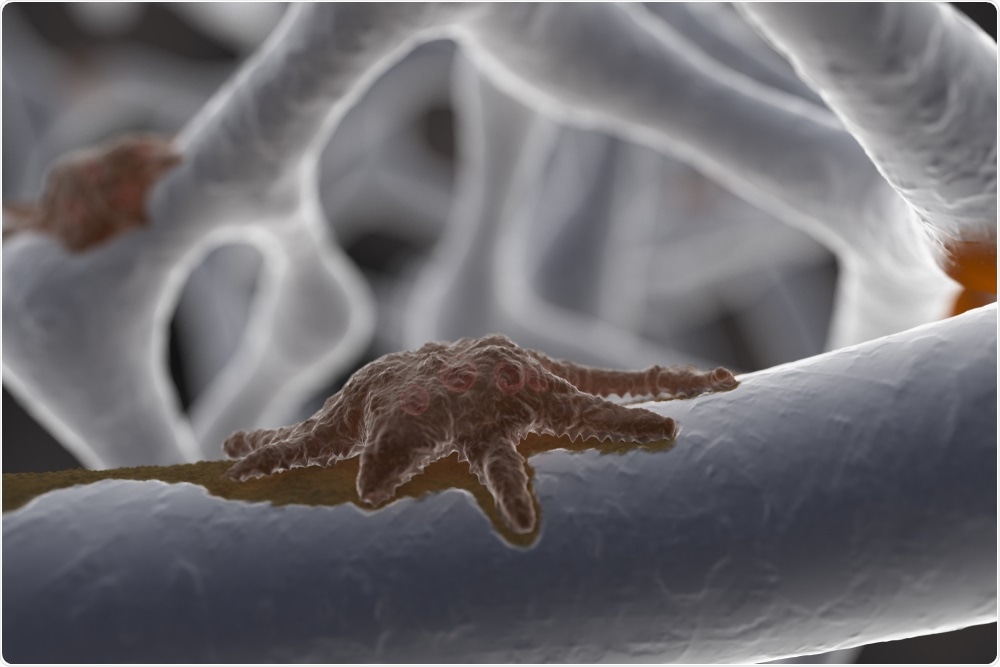Osteocytes are seen within bone tissue. They are cells with tree-like projections known as dendrites vital for receiving communication from other cells. Dendrites loss during aging results in bone fragility and osteoporosis.

Image Credit: SciePro/Shutterstock.com
A group of international researchers headed by investigators from the Massachusetts General Hospital (MGH) showed how osteocytes form dendrites—a finding that may guide strategies to retain these projections and thus safeguard people’s bone health throughout life.
The research was published in the Nature Communications journal.
The scientists identified that the deletion of Sp7, a gene associated with both rare and common skeletal diseases, in osteocytes resulted in grave defects in osteocyte dendrites. The gene Sp7 encodes for a protein known as a transcription factor, which regulates the expression of other genes. The researchers identified that the Sp7 transcription factor aims at a gene named osteocrin that facilitates osteocyte dendrite formation.
When the osteocrin gene is turned on in mice, it made up for the absence of Sp7 and reversed the defects in osteocyte dendrites.
In this work, we demonstrate key roles for the transcription factor Sp7 and its target osteocrin in orchestrating a gene regulatory network needed to promote healthy connections between bone cells. Understanding how osteocytes maintain this network of connections opens up exciting possibilities for new ways to treat osteoporosis and other diseases where bones are prone to fracture.”
Marc Wein, MD, PhD, Study Senior Author and Investigator, Endocrine Unit, Massachusetts General Hospital
Marc Wein is also an assistant professor of medicine at Harvard Medical School.
Source:
Journal reference:
Wang, J. S., et al. (2021) Control of osteocyte dendrite formation by Sp7 and its target gene osteocrin. Nature Communications. doi.org/10.1038/s41467-021-26571-7.